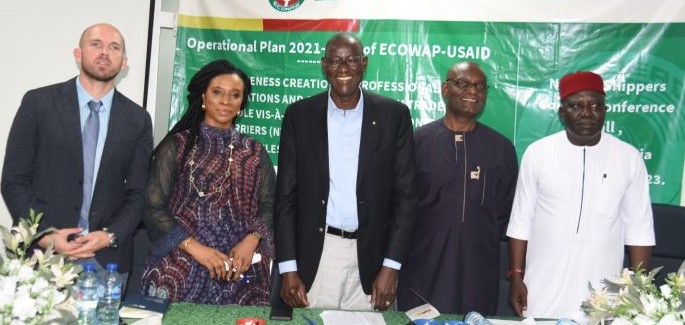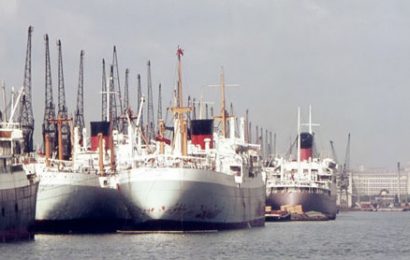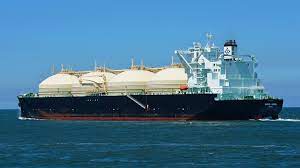

More than 400 trade obstacles have been reported through the Trade Obstacles Alert Mechanism (TOAM) along the ECOWAS trade corridor.
Speaking on Friday, the Executive Secretary of Nigerian Shippers’ Council (NSC), Emmanuel Jime also explained that various studies conducted along the borders of West African nations, had persistently highlighted the bottlenecks faced by traders, particularly in border crossings and Customs clearance processes.
Speaking during a Sensitisation Workshop held in collaboration with the ECOWAS Commission, Jime observed that the trade barriers, which were so many, comprised lengthy clearing terms, transit checkpoints with unwarranted delays, harassment, exorbitant illegal fees, and demands for bribes, with far-reaching consequences.
Jime noted that the barriers, not only disrupt the seamless flow of goods but also pose a direct threat to regional integration endeavours.
The Executive Secretary, however, explained that more than 49 percent of them had been effectively addressed by national focal point representatives, supported by advisory services from the International Trade Centre (ITC).

He said: “In addition, the NSC’s Complaints Unit (CU) stands as a testament to our tireless efforts in resolving shipping-related issues. We understand that disputes and challenges can during trade transactions. Hence, we have dedicated resources and expertise to swiftly address these issues, ensuring that businesses can continue operations with minimal disruptions.
Our commitment to fostering collaboration and harmonization among various stakeholders in the trade ecosystem is unwavering. We actively engage with other agencies, both within Nigeria and across West Africa, to align our efforts in promoting trade facilitation.
“NSC is at the forefront of advocating for the digitization of port processes. We recognise that the digital transformation of port operations is instrumental in streamlining trade, reducing bureaucracy, and enhancing transparency. Through advocacy and active, and consistently embarked on initiatives aimed at enhancing trade efficiency and reducing barriers to participation in the modernization of port systems, we aim to usher in an era of more efficient and responsive trade infrastructure.“Our collective focus today revolves around a topic that is not only crucial but timely, given our region’s aspirations for economic growth and regional integration




